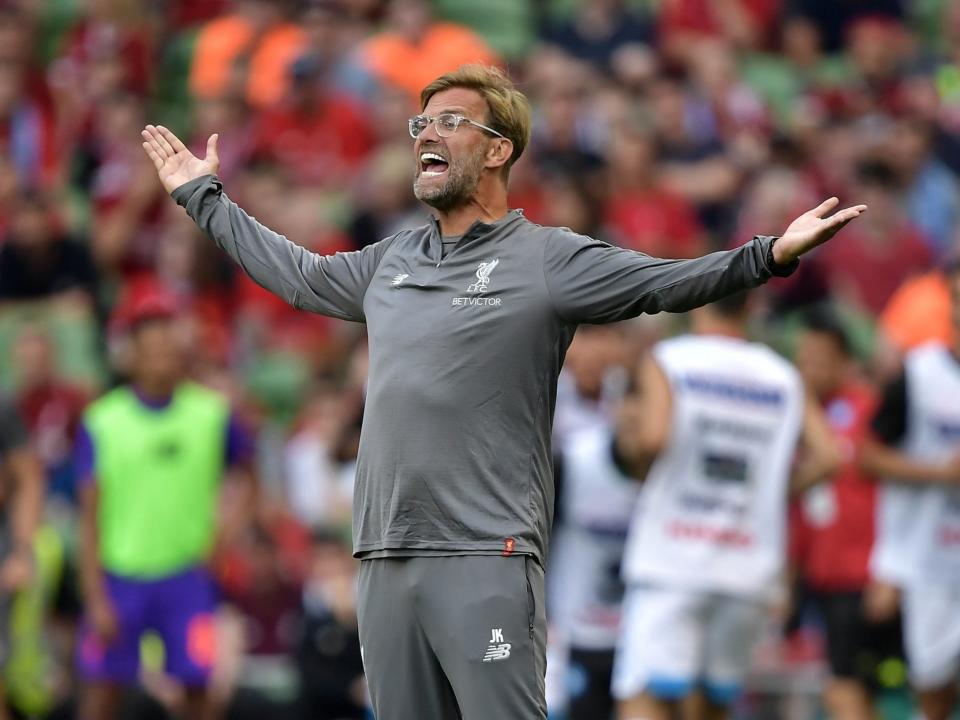How the Premier League table would have looked without refereeing errors

Manchester United boss Jose Mourinho loves a moan, but his team were the ‘luckiest’ side in the Premier League last year, according to a new study, while rivals Liverpool were the ‘unluckiest’.
One of the ‘most detailed’ pieces of research ever conducted judged that Liverpool missed out on 12 points in matches that were impacted by refereeing errors.
United, meanwhile, gained six points thanks to dodgy refereeing decisions – wrongly disallowed goals or incorrect decisions on penalties and red cards – that went in their favour.
READ MORE: Revealed: the world’s most valuable sports teams
READ MORE: Pints, paint and sausages: Football’s weird and wonderful transfer fees
READ MORE: The staggering amount Ronaldo earns for one Instagram post
The study was conducted by ESPN, Intel and the University of Bath and results show that Liverpool would have leapt from fourth place to second, with Manchester City still the clear leaders.


At the bottom, Stoke would have stayed up with Huddersfield going down, whilst Brighton would have seen the biggest movement, leaping six places and earning an extra £11.5m in prize money.
In terms of dropping down the table, Leicester would have moved from ninth to 14th.
READ MORE: Sessegnon, Sarr & Torres – The teenage stars to watch in Europe’s big five leagues
READ MORE: Salah reveals he drove on the pavement as he learned to master English roads
READ MORE: Gossip – Chelsea launch bid for Oblak
Arsenal can also feel hard done by, with the ‘luck index’ table having them fifth with 71 points, rather than sixth with 63.
Other interesting points from the research found that Leicester scored three goals once injury-time had ran out, more than any other side and that Newcastle’s Matt Ritchie was the luckiest player, avoiding two red card and giving away a penalty.

So how does it work?
Former Premier League referee Peter Walton worked with the research team and watched footage from all 380 fixtures in the 2017/2018 season.
He was specifically looking for: goals that should have been disallowed, incorrectly disallowed goals, incorrectly awarded penalties (that were scored), penalties that were not awarded but should have been, incorrect red-card decisions, red-card incidents that were missed, goals scored after injury time overran and deflected goals.

If an incident was noted in a game, the outcome of the game was predicted by the model, taking into account plenty of other factors, such as form, home advantage and the strength of the teams.

Once that process was done, a new table was generated based on luck.
Walton explained: “The results demonstrate the impact and importance of refereeing decisions on a game.
“With the Premier League deciding not to introduce VAR for the coming season, it is interesting to see how much luck plays a part in the way the league unfolds.”
Assistant professor Thomas Curran of the University of Bath labelled it “one of the most detailed pieces of research we have ever conducted”


